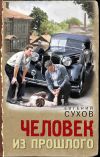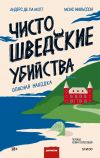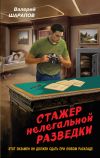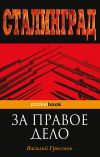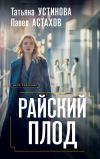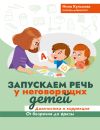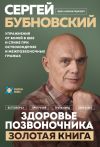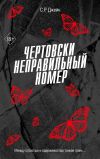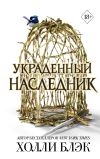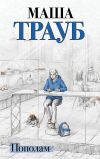Текст книги "Sensei of Shambala"

Автор книги: Anastasia Novykh
Жанр: Эзотерика, Религия
Возрастные ограничения: +12
сообщить о неприемлемом содержимом
Текущая страница: 12 (всего у книги 23 страниц)
“Yes.”
“Do you remember how the customs official, Vereschagin, sat down to dinner and when his wife put before him a whole plate of black caviar, he glanced at it and said, ‘Again this caviar! I just can’t eat it any more, damn it. Can you go and swap it for bread?’ In other words, everything becomes boring very quickly with time. And life becomes boring even much more. If you remembered at least a part of what you experienced in other bodies, you would be fed up with the monotony of bodily forms. To be reborn consciously and to know that this is your eternal destiny is scary, and you can’t even imagine how scary it is. That’s why Jesus punished the Wandering Jew with immortality. Do you remember this story?”
Kostya shook his head in embarrassment, “No.”
“When Jesus was whipped on the way to Golgotha, He felt very bad; He was very thirsty. And when He stopped on the threshold of the house of one of the Jews, whose name was Ahasuerus, and asked for water, he rudely banished Him, being afraid for his life that he would be punished. Jesus said to him: ‘You are afraid for your life; so you will live forever!’ Ahasuerus cannot die and wanders all over the world, no matter how much he’s bored by it.”
“So, will he never be forgiven?” Tatyana asked, feeling pity for him.
“Not until there is overall forgiveness, until the entire world repents. But that’s already another story.”
Sensei glanced at his watch.
“Alright guys, it’s time to begin a meditation, otherwise our conversation might go on for a long time. Today, we will repeat for some of you and some of you will try to work through the chakras of legs and the chakra Hara.”
“Where are they located?” asked Stas.
“The chakras of the legs are located in the center of the feet, and the Hara chakra is three fingers lower than the navel in the point of Dan-tian. Translated from Japanese, Hara means belly. This is a center of the human and it practically coincides with the center of gravity, both in the physical and the geometrical sense. This meditation, just as the previous one, is focused on concentration of attention… And now stand up, relax, put your legs as wide as your shoulders…”
We stood up in a comfortable way, relaxed, and concentrated on performing the meditation.
“Now we’ll breathe in as usual, in other words, voluntary, and breathe out into the bowl-like Hara, as if filling it with Qi energy until you have a feeling of light heaviness. When the Hara fills up, you should let this Qi energy pass through from Hara into the legs through the center of the feet into the earth…”
For some time I drove this energy only with my thought. But then my imagination switched to an evidently real feeling of my belly bursting as if water had been poured into me. Meanwhile Sensei reminded us, “When Hara is filled up, you should pour this energy out through the legs, through the center of your feet into the ground.”
I tried again to do it in my imagination, mentally working on my body. Gradually, I started to feel some kind of warmth, starting with a small streamlet. It wasn’t wholly but only partially felt in the area of my shin and my foot. Even though it was pretty cold outside, my feet in my boots started gradually to warm up. When I noticed that I switched to thinking about how I was able to do it, the feelings somehow disappeared as soon as I gradually deepened my mind into logic. But just as I tried again to concentrate, Sensei notified us that the meditation was over.
“Take two deep breathes in and out. Sharply clench your fists, open up your eyes.”
I looked at my watch; only about ten minutes had passed. To me it had seemed like a lot more. Someone noticed that the snow had melted under us. We looked around with amazement. Under some of the senior guys, the thawed patches were about 40 centimeters in diameter, and under us just ordinary ones.
Eugene glanced at Stas and declared, “You see, and you complained, ‘It’s so cold, it would be good now to be in Africa.’ There’s no need for you to go to Africa. There are already palm trees starting to grow under your legs.”
Addressing Sensei, he added, “I suspected a long time ago that something was not right with his origin; he is always drawn to Papuans.”
After another series of jokes, when everybody calmed down a bit, Sensei said that we could work on this meditation on our own at home.
“And on the Flower of Lotus as well?” asked Kostya.
“Of course. Pay special attention to it and do it every free minute.”
“When will we see results?”
“Don’t worry, if you aren’t lazy, the results won’t make you wait.”
“I’m sorry. I wanted to return a bit to our conversation before the meditation. You said that all scientific knowledge is given to the world by Shambala. I didn’t quite understand how is it given?” Nikolai Andreevich uttered it with a faint note of arrogance in his voice. “I always thought that a human is a pretty intelligent creature to invent everything on his own, including scientific discoveries.”
“Well, what should I say, in general, a human, undoubtedly, will one day become a perfect creature… But as long as the animal nature prevails in his mind, he won’t even be able to invent an ordinary chair if he were not told how it should be done.”
“How can it be?”
“Well, simply. It’s only now that people are so smart because they use the knowledge of the ancestors. But how did their ancestors find out about that, have you ever thought? Even in the most ancient legends of the Sumerian civilization, written on clay tablets, it is mentioned that people from the sky told them how to organize the household, how to build houses, how to fish, how to cultivate vegetative food for themselves, and so forth. Before that, people lived like a herd of animals… Let’s take for example, the modern world. How do scientists make discoveries?”
“By intensive work on the given subject of research.”
“Certainly, externally this looks exactly this way. But the very instant of discovery, the instant of insight?”
Nikolai Andreevich shrugged his shoulders.
“Recall the history of great discoveries,” continued Sensei. “Take for instance, the well-known periodic system of Dmitriy Ivanovich Mendeleev that came to him in a dream in its final form. He was given only a partial form that can be perceived by mankind at this stage. It’s the same story with the structure of the atom discovered by Niels Bohr, with the formula of Frederick Augustus Kukle, with discoveries of Nikolai Tesla, and many, many others. Practically all the scientific ideas and theories of mankind appeared as a result of insights, intuition, and more often as inspiration from on high. In other words, these discoveries were extracted by scientists from the depths of their subconscious.
“The depths of the subconscious is the chakra called the doors or the gates, call it as you wish, which can be opened from one side as well as from the other side. It is just a transition to a completely different sphere, a different dimension, a different information field. So, when necessary, a ready answer can be inserted into the brain of a scientist from that side.”
“Who inserts it?” Kostya inquired.
“The One who’s located on that side. Every human perceives Him differently: some take Him for the Absolute, some believe it’s the Collective Intellect, or Shambala, or God…”
“I wonder whether Shambala and God are one and the same?” Ruslan asked, pondering something.
“No. God is God, while Shambala is just one of His creations.”
“And what is Shambala in relation to mankind?” asked Nikolai Andreevich.
“It’s simply a source of knowledge. Speaking with modern language, it is a certain bank of information, the entrance to which exists in the depths of the subconscious of every human.”
“So, it means that one can get into Shambala without leaving the room?” Stas was surprised by his guess.
“Absolutely correct…”
We spoke a little more about the questions worrying us until Sensei once again glanced at his watch.
“Alright, guys, it’s already late; it’s time to leave.”
Honestly speaking, I, as well as the others, didn’t want to leave. Eugene precisely expressed our mutual opinion, “The soul demands the continuation of the banquet.” But, alas, we needed to go home so that our relatives would not worry about the long absence of our bodies.
25
The following days flew by uneventfully. At the next training, everything was as usual: the warm-up, the basics, the new techniques. This time we were given new techniques from the Monkey style. In order to execute a deceitful blow or to make a simple attack, we tried to copy the habits of this animal, which looked pretty funny. Eugene, as always, didn’t fail to express that for the majority of our group there was no need to copy the monkey because our habits in life evidently surpassed the original. In short, the training went by quite emotionally and merrily.
After the additional training, when almost the entire crowd had left, we continued polishing the complex exercises Sensei showed us for individual work. Already at the very end of the training, a solid, imposing man, about sixty years old, entered the sports hall. Sensei, on seeing him, smiled and said, “Whom do I see?! How did you get to us, George Ivanovich?”
“Don’t even ask me,” the man said, slightly indignant. “I have been looking for you for two hours, circling half the city.”
Sensei grinned, “I beg your pardon, Sir Academician. I was busy and couldn’t meet you near the ladder.”
Having greeted each other in a familiar way, they went deeper into the sports hall and, sat down on the sport benches, and began to talk about something.
Upon hearing the word ‘academician’, it was too much for my curiosity. The others around didn’t react in any way to the appearance of the guest. The senior guys continued polishing their strikes as if nothing had happened and concentrated on the work. Our guys kept up with them. Tatyana and I also tried to put on a good show. But with the arrival of this man, all my attention switched to him and Sensei. I saw that Sensei, turning to the guest, started to gesticulate, saying something in quite animated form, and I couldn’t bear it. Dodging Tatyana’s blows, I began gradually approaching them with this improvised sparring. I heard the following words of Sensei, addressed to his guest.
“About twenty years ago you dreamt only of worldwide fame and recognition as a remarkable scientist, and you offered us your services in exchange for concrete knowledge that would make you a leader in science…”
“Oho!” I thought, dumbfounded. “Sensei speaks to him in such a familiar way! But who are these ‘us’? What services?”
Meanwhile Sensei continued, “…From our side, we fulfilled the conditions of our agreement. You received detailed information from us, starting from the semiconducting heterostructure laser and ending with the converters of solar energy. Isn’t that enough for you?! All your life, you did nothing and just used our knowledge, and in a few years you’ll get the Nobel prize. Not so bad, right?! I don’t understand what the problem is?”
The man sat, hanging his head. When Sensei finished, he raised his eyes towards him. His face his was all red, probably because of strong agitation.
“What’s the problem, you say? You take me for a fool!” With a softer tone, he added, “I remember everything perfectly and never renounced my words… But explain to me, please, where can I find an energy source with the necessary power? In order to launch the plant, according to the blueprints which you handed me, I would have to switch off the power to at least the entire region of Leningrad. You want this plant to work from the beginning of August until December. This means that for these months Leningrad and other cities will be without light!”
“Dear George Ivanovich, don’t worry about the source of energy, we’ll supply you with it,” Sensei replied.
“Are you going to bring a nuclear generator to my institute or what?! How can you imagine that? Why does it have to be exactly on the territory of our institute? Can’t you do it in some other place, in Moscow, for example?” George Ivanovich was indignant.
“We can, of course. But we decided that your institute is located in a more convenient place… And we’ll supply you with the source of power. You need not worry, it is very small in size, no bigger than a briefcase, so it won’t take up a lot of room. Its energy is sufficient for the plant to work for the time needed.”
“I apologize, but you mentioned millions of kilowatts. It’ll all be in just a briefcase?” the academician was surprised.
Sensei smiled. “Don’t stuff your head with trifles. I can partially satisfy your curiosity and say right now that this is a vacuum source of energy. Moreover, we will give you, as promised, a frequency converter for this equipment. But I warn you in advance, I wouldn’t advise you to get in there and disassemble these devices; otherwise, it will be a million times worse than Hiroshima even though in outward appearance, they look completely harmless. But remember, the plant should begin to work continuously no later than the 15th of August.”
“Alright. And when will you deliver them to me?”
“I think right after Christmas they will be delivered to you.”
“Well… Just…” The academician halted a bit.
“What?”
“I’m curious to know one thing. You spoke once about noninterference in our life, while this plant is an evidence of the opposite.”
“We do not interfere. If we interfered, we would stop the events that are going to burst out. But we don’t have the right; it’s your will, do what you wish. It’s just not in our interest that a third world war break out with the use of nuclear weapons. That’s why we only want to smooth away the consequences of these events.”
“And is there a guarantee that these waves won’t harm anyone?”
“We assure you that it is absolutely harmless. People will become calmer and more reasonable.
That’s why their reaction will be softer and won’t develop into some global conflict. But I repeat, we don’t have the right to prevent these events. If you want, prevent it yourselves. It’s your business.”
The academician got up heavily from the bench and began to bid farewell. Sensei accompanied him to the door, one more time reminding him about the date. Shaking each other’s hands, they said goodbye. I heard how Sensei, coming back from the door, mumbled to himself with a smile, “Hmm, every fool considers himself to be smart, but only a smart one can call himself a fool.”
I was very impressed by this peculiar conversation. “Who is Sensei? Is he a physicist?” I thought. “He probably works in some scientific research institute. Sensei also once told us about some profound physics. In that case, it explains a lot about the extensive range of his knowledge.” This was the only explanation that came to my mind and was more or less acceptable because the thousand other questions completely confused me, and I couldn’t find a clear explanation for them. Nevertheless, Sensei rose in my estimation as a scientific authority because even the academician valued his opinion, even though Sensei did not want to distinguish himself from the crowd. On the way home, as usual, he joked with everybody, keeping up our happy mood after the monkey training. However, at home, I didn’t forget to write down this unusual conversation in my diary with a big remark at the end, “It turns out that he is a physicist!”
26
A few days later, when I was shopping with my mother as usual, I was making plans for the evening, thinking over questions that I intended to ask Sensei at the training. After yesterday’s rain and night frost, there was a heavy fall of fluffy snow on the streets. Winter here was quite warm in comparison to those regions of the Soviet Union where we had lived before. Miners’ snow looked like snow only the first day because on the second day it became grey from coal dust, and on the third day, it completely melted, turning into wet, slushy mud. Every New Year we celebrated with the same weather forecast: “Rain turning to wet snow.” So I was glad to see at least this fluffy snow and feel the long-awaited freeze. It was giving me hope that next New Year, which was only three weeks ahead, we may celebrate properly, with real winter and a lot of fun.
As I was dreaming of a good future, we were walking to the next store. Suddenly my mother unexpectedly slipped and fell back so hard that even her legs flew up. It happened in a few split seconds. I didn’t even have time to understand, not even to catch her. Men passing by rushed to lift her up. I also tried to help somehow, being really scared. Having thanked the men, my mother stood up, leaning on me.
“Mum, how are you, can you walk?”
“Hold on, my back hurts so much, as if something cracked.”
“Maybe we should go to the hospital?”
“Just wait; it will pass.”
We stood a bit and then slowly walked home. My mother limped slightly. At home, she felt even worse. We didn’t want to bother father at work and hoped that it would pass. The pain kept getting stronger, and no pills helped. We tried all we could: we rubbed it with different ointments, made compress, and simply warmed it up. But she felt even worse after the last procedure. Of course, I didn’t go to the meditation training. And when my dad came home late in the evening, we tried everything possible in order to relieve the pain. There was only one way out: to go to the hospital. My father made a few calls and arranged for mother to be observed by a doctor at the regional department of neurosurgery.
In the morning, her state quickly worsened. An aching, sharp pain passed into her leg. Even the slightest movement caused the strongest attack of pain. She was even taken into the hospital reclining. In the neurology department, after a series of X-rays and computerized tomography, the doctor diagnosed that she had had osteochondrosis of the spinal column for a long time, and the fall had caused the fibrous ring to burst and a 7 mm herni-ation of the intervebral disk. As a result, the sciatic nerve was squeezed, and the strong pain extended to her leg. After careful examination, the doctor sent her to consult with the neurosurgeon. My father again found a good neurosurgeon, who, having studied the results of the examination, concluded that an operation is inevitable.
It was a catastrophe for our family. We saw more than enough bedridden patients on the way to the consulting room of neurosurgeon. My mother also heard plenty of horror stories from her future neighbor in the neurology ward, who needed to undergo a second operation. My mother was so scared by the forthcoming operation that, after consultation we abducted her from the neurosurgery department, if our strenuous hobbling could be called an escape. Thus, unexpectedly for all of us, the future looked dark. We decided to try drug treatment, injections, and, as they say, to fight to the end.
From that day when my mother went into the hospital’s neurology department, my life changed sharply. In the morning I went to school and later went by bus to the regional neurology department. All the time I was near my mother and tried to support her spiritually. As it seemed to me, it was very important for her. The doctors were indignant that outsiders visited her, but my father quickly settled that question. The hospital became the main place where I spent my free time.
My mother was all the more sad that misfortunes, one after another, chased our family. Moreover, a news came from Moscow that the date was fixed and I was awaiting an operation after the New Year’s holidays. My mum greatly worried that I had given up my favorite hobby classes and trainings and even tried to insist that I should return to my usual life. But I didn’t listen to her. It seemed to me that nobody would take care of her like me and that without me she would simply fade away from her bad thoughts and the oppressing atmosphere of the ward where all her neighbors just spoke about their diseases.
At first, I, as well as my family, was a little bit shocked. “How could such a thing happen?” I thought. “So unexpectedly, and to my mother. Our life is so unpredictable! It only seems to us that we can forsee and plan everything in it, and that everything will be exactly like we imagine. In reality, every day is a trial, as if somebody wants to test us, how reliable we are, how steady we are internally in various situations, whether it’s joy or grief. Maybe these stresses that make us their unwillingly witnesses and participants appear to us as reminders from above that life is too fragile and that we might not even have time to do the most important thing in it. We are so accustomed to put aside the important things in our soul for an indefinite ‘later’ that we don’t realize how quickly life passes and that we do not have time to do anything serious in it.
Why do we start to really value something only when it is irretrievably lost: youth, in old age; health, on the hospital’s bed; life, on our deathbed? Why?! Maybe these sudden situations make us think over our perishable existence, make us wake up from our unrealizable fantasies borne by our laziness and bring us back to reality. Reality shows that nobody clearly knows what can happen to him at any minute. So, maybe it’s not worth tempting fate and we should start to value each moment right now, value it as if we were people doomed to death. Maybe then we’ll be able to understand more deeply the sense of life itself and do a thousand more useful things for our soul and for surrounding people. “It’s foolish to think that tomorrow is waiting for us, it may simply never come.” Only now did I understand the real meaning of Sensei’s phrase, which once I believed to be a joke: “If you want to make God laugh, tell Him about your plans.”
In the first few days with mum in the ward, we listened to the life stories of her neighbors, and I found proof that nobody is insured against Mr. Accident. The woman whose bed was next to the window was called Valentina Fedorovna. Just one instant had turned her entire life upside down, and it happened unexpectedly as well. She and her husband were living from hand to mouth, with hardly any money. They decided to join a wave of the cooperative movement, so her husband quit the factory and registered his own furniture cooperative. Her husband was enterprising and hardworking, and the business was successful. In just one year, they made so much money that they bought new cooperative apartments, a car, and even a country lot. Everything couldn’t be better and they had no troubles.
But two months ago, when Valentina Fedorovna was coming back with her husband from a relative’s birthday party, they got into a big car accident. It happened in a split second. Three cars crashed into each other at full speed because of a drunken driver in the oncoming lane. Her husband died immediately. Thanks to being fastened by a seatbelt, she miraculously stayed alive. However, she was told that the doctors later diagnosed a subluxation in the cervical area of her spinal cord with a hematoma. After that, her hand hardly moved, while she couldn’t feel her legs at all. The subluxation was cured in the neurosurgery department. However, the hematoma remained as a consequence of the spinal cord injury. Valentina Fedorovna was transferred from the neurosurgical to neurological department about one month ago.
It seemed to me that she suffered more in her moral state than in her physical state. At that moment, her life was destroyed. She had to mortgage a part of her property because all the money she had was quickly spent on treatment and on paying off her husband’s odd debts. But most of all, she was shocked by the strange attitude of her friends.
She told us that she had many friends and relatives, but as soon as they found out that her husband had died and that she remained disabled alone, everybody for some reason immediately forgot about her existence. She had been in the hospital for two months and had been visited only by her old grandmother and her sister, who, despite the fact that she lived in poverty, always tried to bring her something delicious. Valentina Fedorovna now understood who is who, but it was already too late. That evening, I wrote down in my diary her old grandmother’s interesting expression regarding careless friends, “When the pot is boiling, the house is full of friends. And when the pot is gone, nobody comes.”
Valentina Fedorovna was in despair and didn’t find any other way out for her grief except slandering her former friends and relatives. I felt uncomfortable when hearing such speeches. These bad words spoilt her own mood and made her very nervous, and she inflamed hatred in herself and people around her suffered. We didn’t even want to mention the word ‘friend’ because this woman would explode and resume her non-stop complaints.
Another woman, Anna Ivanovna, was kind. She didn’t curse her destiny, though her health wasn’t any better. She had almost the same kind of disease as my mum. One day, her back simply began to ache. The doctors found a herniated disk. They performed an operation and eliminated the vertebral herniation. After that, she felt a lot better. But some time later, she again fell ill and felt even worse. The doctors recommended her for a second operation, but she was afraid that she wouldn’t be able to walk after it. Anna Ivanovna was quite reserved in telling her story, but the details, especially the consequences of her operation, scared not just my mother but also me because I, most likely, would be operated on by neurosurgeons as well.
Anna Ivanovna hardly moved. Her husband, a happy plump man, often visited her. Their children had grown up a long time ago and lived with their families in different cities. But Anna Ivanovna had her own distress, as she was most of all afraid to be bedridden; after all, she was only fifty. She was afraid to become a burden to her husband and even more to oppress her children with her illness. That’s why this woman tried very hard to recover, swallowing all the assigned pills and performing all the prescribed procedures. But sometimes, when the pain became unbearable, optimism left her and she would weep bitter tears, repeating the same question, “Why?!”
The third neighbor, a young woman about five years older than me, had afterbirth trauma. Lena had already felt pain in her back during the pregnancy. Her right leg completely stopped moving; she couldn’t even move her toes. As it turned out, she had a protrusion of two disks. At home, she left the baby in the care of her retired mother-in-law. She also was visited by her husband. He was a good guy: calm, and probably a meek person. Her mother-in-law, on the other hand, was rushing like a hurricane, always grumbling and dissatisfied with trifles.
This complication after the delivery, which nobody could foresee, put the young family on the verge of collapse. Apart from the fact that Lena had serious health problems and couldn’t physically take care of the child, her mother-in-law regularly provoked conflicts, telling her son that he didn’t need a cripple wife, that it would be a burden for all his life, and that he should ask his wife for a divorce. Lena couldn’t rely on anyone else to be with her child but her mother, but the mother lived far away in a different city and seldom visited her because she worked all the time in the factory, barely making ends meet. In general, Lena’s life had turned to a continuous tragedy.
Having heard plenty of all these stories, I realized that not one of these patients had expected such an outcome; everyone lived and planned something, but the events came like thunder amidst a clear sky. Everybody complained about why it happened specifically to them. In the evening, after having heard all of that, I randomly opened my diary and came across Sensei’s words, “There is no such thing as an accident. Accident is only a natural consequence of our uncontrolled thoughts.” “That’s it!” I thought. “Strange that I simply didn’t pay attention to these words before.” In order to improve my vigilance, I marked them out in the diary with bold italics.
I really wanted to visit Sensei’s trainings, but I just couldn’t get out from this whirlpool of events without feeling guilty. I regularly called my friends, who effusively bragged about their successes. At home, I continued doing meditations, and I tried to do the Lotus Flower every free minute. It worked well to evoke feelings when I thought about a desirable present. At that thought, a wave of tiny ants would arise in my solar plexus and spread through my whole body in different directions. This feeling was quite pleasant. Even though I wasn’t near Sensei, his words in my diary constantly circled in my mind.
In the hospital, I decided that, at any cost, I would change the unhealthy atmosphere in the ward because listening to talk about diseases and oppressive existence could quickly weaken even a healthy man. Visiting my mother, I tried to tell all the funniest stories I knew, starting from school life and finishing with different amusing incidents from literature. But this method was ineffective, since the women remained deep in thought about their own problems. One time, talking to Lena, I told her what I heard from Sensei about good and bad thoughts, about the essence of our soul and our life. Amazingly, the women started listening to these words with such attention, as if they weren’t Sensei’s words I was telling but rather a confession that concerned each of them. My mother said that after my departure they continued to discuss these words and reflected on their meaning in relation to their life experiences. Strikingly, in just a week after my speech, there were some unexpected results.
Valentina Fedorovna, who more than everybody groaned and grieved, transformed herself into a completely different person, an intelligent organizer of her destiny. My mother said that after these conversations she intensively pondered something. The result of her decision surpassed all expectations. She offered Lena’s husband the official position of director of the furniture cooperative with a correspondingly good salary. This was a complete shock not just for the young family, but especially for the mother-in-law. They simply didn’t know how to thank Valentina Fedorovna for this present of destiny.
Правообладателям!
Это произведение, предположительно, находится в статусе 'public domain'. Если это не так и размещение материала нарушает чьи-либо права, то сообщите нам об этом.


















